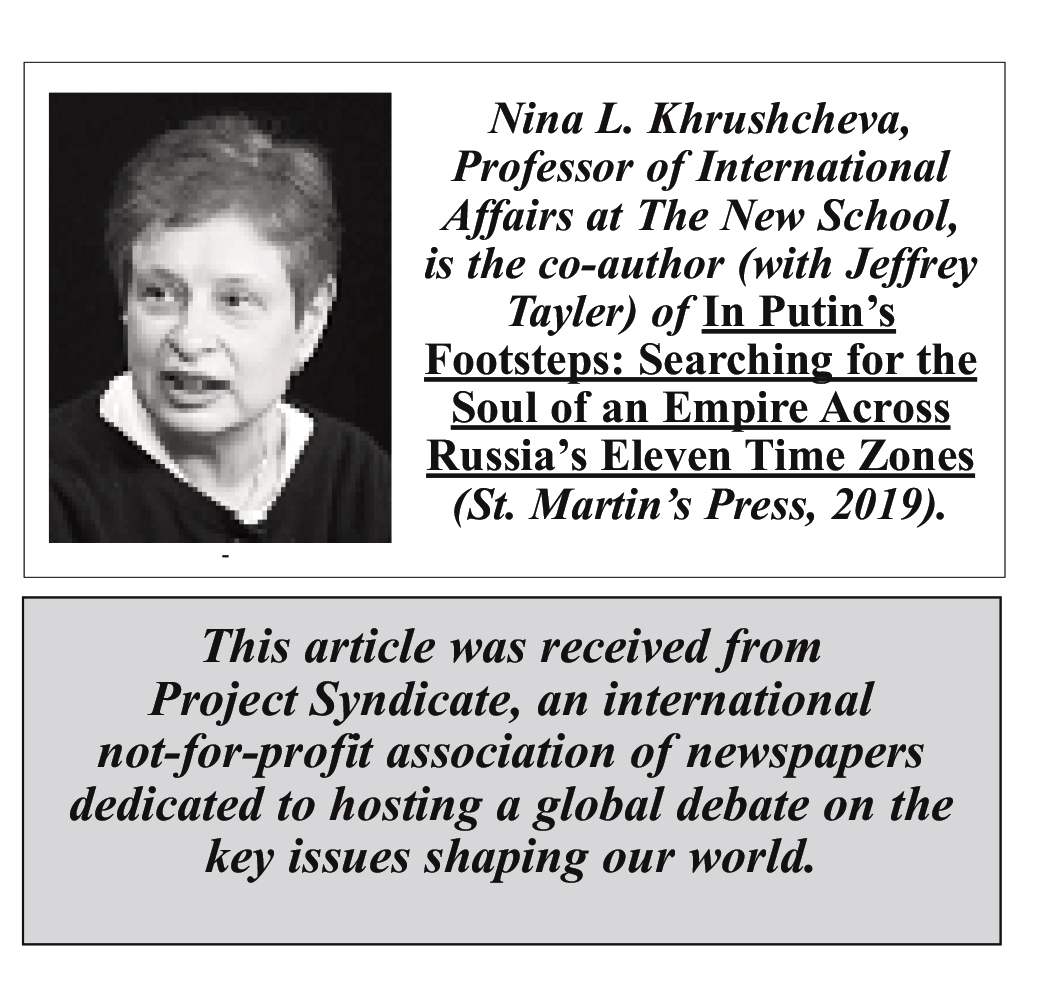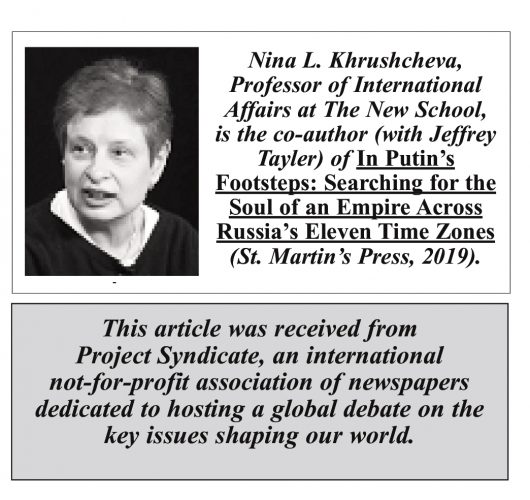MOSCOW – No development during Vladimir Putin’s 23 years in power has so clearly pointed to his regime’s fragility as the Wagner Group’s aborted mutiny on June 24. The Wagner mercenaries, led by Yevgeny Prigozhin, brazenly challenged the Kremlin’s authority – and now appear to have gotten away with it. Russia’s internal security service, the FSB, has abandoned its criminal investigation into the revolt. But Putin’s problems hardly end with Wagner.
Prigozhin’s fighters would not have been able to travel almost a thousand kilometers (621 miles) within Russian territory in less than a day without help from members of Putin’s inner circle or the military. Rumors are swirling that the billionaire brothers Yuri and Mikhail Kovalchuk may have played a role. The Kovalchuks, close associates of Putin, reportedly share Prigozhin’s belief that Russia has not been forceful enough in the war or in its broader confrontation with the West.
Another possible collaborator is General Sergei Surovikin. Like Prigozhin, Surovikin has reportedly advocated a far more brutal war effort than Defense Minister Sergei Shoigu seems willing to conduct. Since the mutiny, he has not been seen in public, and is said to be “resting.”
A dozen or so other senior military figures have been suspended or removed pending further investigation. And it is not only possible involvement in the mutiny that is getting people fired: General Ivan Popov, a senior commander in Ukraine, was dismissed after criticizing the military’s senior leadership for their conduct of the war.
Meanwhile, Wagner fighters are facing no punishment whatsoever. They are expected simply to relocate to Belarus or keep fighting for Russia, but under a different commander. Prigozhin has not even really been exiled, as the deal to end his “march on Moscow” supposedly required. He has been seen in Saint Petersburg and Moscow, where he and dozens of Wagner commanders secretly met with Putin on June 29.
One could argue that this outcome reflects Wagner’s ambiguous status in Russia, where private military organizations are technically illegal. Before Russia’s full-scale invasion of Ukraine last year, Prigozhin denied that Wagner was a private army at all. As Putin recently noted, Wagner “exists,” but not as a “legal entity.” There “is a group,” but legally it “does not exist.”
And yet, in a meeting with Russian military staff on June 27, Putin revealed that last year alone, Wagner forces received 86 billion rubles (almost a billion dollars) from the Russian state for their services. If the mutinous fighters are on the state’s payroll, then they should be court-martialed, not pardoned.
Impunity for Wagner is all the more jarring at a time when ordinary Russians are living in a near-totalitarian police state. Any criticism of the Ukraine war – even merely expressing doubts about its rationale or suggesting that efforts to achieve peace are needed – can land a person in prison or branded as a “foreign agent.” Nowadays, Russians dare to ask questions about the war only in private.
Putin appears to hope that he can rely on Orwellian doublespeak to keep Russians quiet about his approach to Wagner, too. As in the Soviet era, Russians are being ordered to believe ideas that directly contradict each other and historical narratives with no basis in reality. Forget your own knowledge, memory, or experience – the supreme leader knows better.
So, propagandists on every television channel have spent the last few weeks railing against Prigozhin’s treachery and playing up the rebellion’s disastrous potential. This way, Russians will feel relieved that a deal was reached and bloodshed was avoided. But in the days after the mutiny – which Putin had called “treason” – pundits also speculated relentlessly about the kind of amends Prigozhin would have to make to avoid harsh punishment. After all, the pundits reminded Russians, Putin is not known as a forgiving leader.
And yet Putin recently offered employment opportunities to Wagner fighters, who he claims “fought with dignity” but were regrettably “drawn into” the mutiny. He would even allow them to continue fighting as a group he recently explained, though not under Prigozhin. So, if Prigozhin is still an enemy, why does he walk free on Russian soil? Why was he invited to the very meeting at the Kremlin where Putin extended his offer to other Wagner fighters?
Doublespeak cannot obscure such questions. In fact, Putin’s handling of the Wagner mutiny points only to his weakness. The recent behavior of Russia’s elites supports this view. After Popov’s dismissal, Andrei Gurulev, a member of Russia’s parliament, publicized the general’s opinions, which are apparently shared by others in the military. In Putin’s Russia – especially since February 2022 – such expressions of disagreement should not be underestimated.
Discontent with Putin’s leadership is not limited to Russian officials. The latest polls indicate that 53% of Russians are eager to seek peace, compared to 45% in May.
Given the pressure the public is under not to criticize the war, the real figure could well be higher. Moreover, 86% of the public reject using tactical nuclear weapons anywhere.
To be sure, Putin’s approval rating remains high, at 81%, and there is little mood for protest. But it may be only a matter of time until that changes. When I was growing up in the Soviet Union, we all publicly praised Leonid Brezhnev’s leadership, despite knowing that the emperor had no clothes. It took a few years and a couple of leaders to get to Mikhail Gorbachev, but get there we did. Likewise, Russians may be afraid to speak out today, but Putin’s weakness – and the cracks in the system he so meticulously built – are unmistakable.
Copyright: Project Syndicate, 2023.










